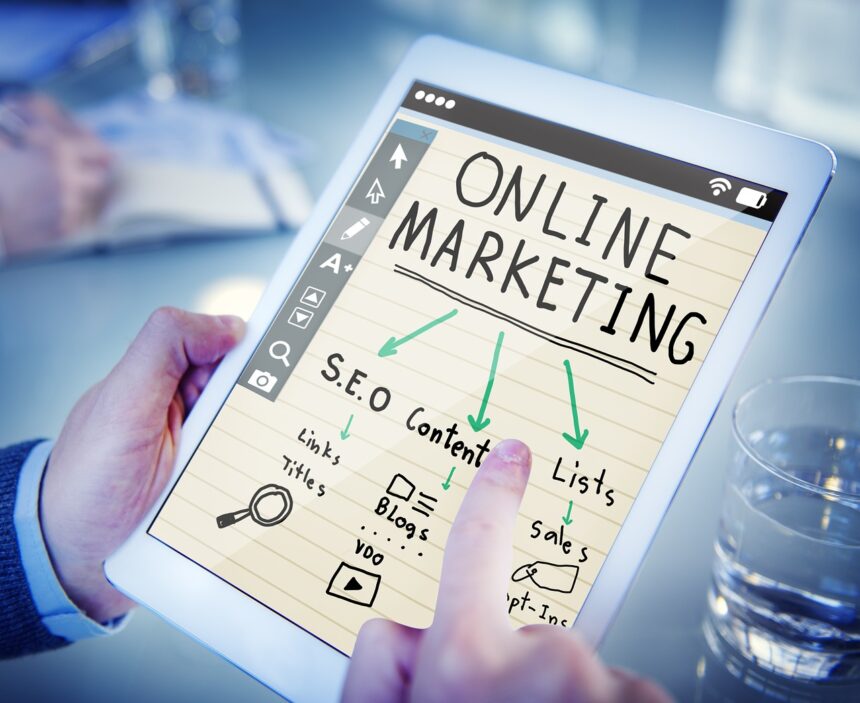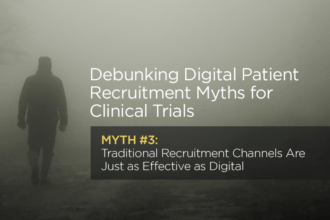
There are many reasons to consider a digital healthcare marketing strategy. Here are ten of the most salient.

There are many reasons to consider a digital healthcare marketing strategy. Here are ten of the most salient.
Everyone has heard about the importance of digital marketing in the internet age. Yet for many healthcare professionals, this call to action might come across as vague or overly generalized, seeming to suggest that they should embrace digital strategies simply because everyone else is doing it.
However, adopting a tech-forward approach does offer a number of significant advantages that are unique to the medical industry — here are ten reasons every healthcare marketer should invest in digital marketing:
1. Your Cost Per Patient Acquisition (CPA) is Too High
Many medical practices are still struggling to lower their patient CPA. For example, according to a seminal survey of U.S. vein practices, the most common media channels used are print (68%) and TV (30%), which cost $314 and $348 per patient, respectively. Digital outreach, on the other hand, can cut that overall cost down by as much as 50%, to $149.
Digital strategies consistently reduce marketing spend and increase ROI, regardless of the industry. We were able to reduce one dental practice’s cost per qualified lead by 46%, and their cost per booked appointment by a full 70%.
2. You Need to Target Patients With Specific Conditions
Unlike traditional broadcast and print media, digital marketing enables physicians to target patients by specific condition, age, gender, demographic, or even zip code. According to BIA Kelsey, 97% of consumers use the web to shop locally; with search engine marketing (SEM), marketers can use highly-targeted keywords to reach patients currently looking for specific treatments in their area. Moreover, those targeting conditions can be optimized in real-time, a cost-saving luxury that traditional methods simply don’t afford.
3. You’re Afraid You’re Falling Behind on the Times
The truth is that 98% of businesses are merging their traditional strategies with digital, according to Gartner. Like we said, you should never adopt a trend just because it’s popular; but when it’s a hit with patients too, you may want to reconsider. McKinsey explains how 75% of people want to use digital healthcare services. As AdAge notes, healthcare professionals need to take their business where the patients are, which is online and on mobile devices.
4. You’re Not Using Data to Make Decisions
One drawback of traditional marketing techniques is that they’re hard to track. In fact, GfM explains that data-driven marketing is the top priority for all marketers in 2016. Digital techniques allow physicians to make efficient, data-led marketing decisions; first, try a number of different low-cost ad spends to determine which channels are the most effective, then scale for maximum visibility and impact.
5. Your Brand Doesn’t Show Up in the Search Engines
SEO Hermit explains how 20% of Google searches are health-related, and over 70% of those searches result in a click on the first page (just 5.6% for pages two or three), according to Marketing Land. Getting your name on page one, however, takes some marketing finesse. A well-crafted search engine optimization (SEO) strategy and paid advertising campaigns are your best bet for snagging those top positions and the maximum number of clicks.
6. You Can Engage With People Directly
It’s a myth that digital isn’t personal. In fact, 70% of all phone calls from consumers are driven by digital marketing strategies, such as click-to-call (CTC), as Biz Report explains. Today, this kind of seamless access has become a baseline expectation for patients, with 41% mobile searchers reporting that if their chosen brand has no CTC functionality, they’ll move onto to one that does. What’s more, CTC conversion rates on Google are often as high as 25%, and boast a 51% lower cost than traditional display remarketing, according the Search Engine Watch.
7. You Can Increase Patient Retention
In the digital age, patients value convenience and ease of access above all. By cultivating a watertight digital engagement strategy, patients will easily be able to find your website, up-to-date practice and contact information, or your patient portal, at any time. Your lasting presence matters, too — according to the research from PwC, 41% of patients say that social media engagement will affect their choice of a specific doctor, hospital, or medical facility.
8. You Can Get More Patient Referrals
Digital tools both expand your potential patient pools and lower the cost of engaging them. For example, we’ve been able to drive down referral costs from 20-40%, all while generating an average 20 to 40 referrals a month — some clients see as many as 300. In the vein market, we recently drove our 250,000th digital referral.
9. You Will Improve the Patient Experience
Not only does digital marketing make it easier for patients to find and connect with your medical brand — it improves their experience along the way. With digital tracking systems, you can easily send out reminders, reaching out to them on important dates. Moreover, you can directly address their specific needs by blogging regularly or soliciting their direct feedback through patient satisfaction surveys.
10. Your Marketing Can Be Personalized
Traditional marketing entailed crafting a generalized message for the broadest possible audience. Digital marketing, however, enables healthcare providers to target the individual. Whether by directing your message to “40-year-old multiple sclerosis patients in Coeur d’Alene, ID,” making your content accessible on the devices that consumers — especially millennials — demand to use, or leveraging data to hone your content’s effectiveness, medical practices can personalize their marketing in unprecedented ways.
(Main image credit: muneebfarman/Pixabay)
![]()







